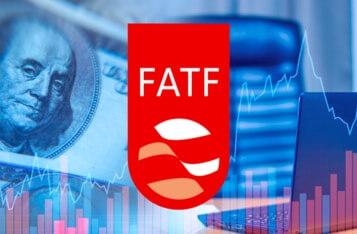Search Results for "travel search engines"
OpenAI Introduces New Plugin Feature for ChatGPT AI Chatbot
OpenAI has introduced a new plugin feature for its AI chatbot, ChatGPT, allowing it to retrieve information from online sources and interact with third-party websites. The feature is in the alpha phase and will only be available to a limited set of users initially, with a waitlist in place to access it. The plugins include e-commerce platforms Shopify, Klarna, and Instacart, and travel search engines Expedia and KAYAK, among others.
Advancing CBDC: Bank of Canada In Search of Digital Currency Economist
The Bank of Canada is in search of an economist with expertise in digital currencies and financial technologies to help advance its CBDC drive.
Online Travel Agencies Booking.com and Travala.com Enters Into Strategic Partnership for Mass Adoption of Crypto
Travala.com, a crypto-friendly travel platform founded in 2017 and Booking.com, an online travel agency established in 1996 have signed a strategic partnership deal that is aimed at encouraging the mass adoption of cryptocurrency.
Blockchain Allowed 17 Million People to Travel Between Macau and China During Coronavirus
A blockchain-powered QR health code system has been instrumental in enabling at least 17 million people to travel between the Chinese mainland and Macau since May.
US Travel Firm CWT Paid $4.5 Million in Bitcoin to Get Computer System Back from Hackers
US travel management company CWT paid $4.5 million to hackers who stole sensitive corporate files. CWT has a global clientele and is the fifth-largest US travel company. The firm boasts an estimate of $1.5 billion in annual revenue and claims that it represents more than a third of companies on the S&P 500 U.S stock index.
Crypto & the FATF Travel Rule: FinCEN Suggests Challenges in Governance, Not Technology
The Financial Action Task Force (FATF) Travel Rule has been in the center of attention lately, which concerns crypto transactions above a certain amount must be accompanied by identifying information.The rule is an update to the existing FATF Recommendation 16, regarding cross-border and domestic wire transfers, and is intended to address the anti-money laundering (AML) and counter-terrorist financing (CFT) challenges as crypto adoption increases. The FATF Travel Rule could mean implications for virtual asset service providers (VASPs), including cryptocurrency exchanges, wallet providers, and custodians.
iComply on FATF Travel Rule: Cryptocurrency is Meant to be Trustless, Not Anonymous
iComply Investor Services (iComply) is a regulatory technology (Regtech) company focused on making financial markets more robust, secure, and efficient. We asked their CEO, Matthew Unger for his take on 2019 FATF Travel Rule Guidelines and find out what these recommendations really mean and how should exchanges or VASPs observe them?
Crypto & the FATF: ING Develops Travel Rule Protocol for Tracking Crypto Transfers Ahead of FATF Plenary Meeting
The FATF has a wide range of recommendations, a total of 40 to ensure regulatory alignment between the compliance imposed on financial institutions and the regulations in its member states. The FATF Travel Rule is Recommendation 16, which has received a lot of attention from the crypto industry, especially virtual asset service providers (VASPs).
Police Search of South Korean Coinbit Crypto Exchange Finds 99% Trade Volume Manipulation
Coinbit, the third-largest crypto exchange in South Korea, has found itself in trouble with the authorities for alleged arbitrage manipulation of the transaction volume.
Tencent Cloud Tech to Support Blockchain Digital Records for Travel Amid COVID-19
Tencent Holdings has joined hands with blockchain firm ShareRing to deploy a blockchain-powered digital document and identity management solution.
Exclusive: Blockpass COO, on the Significance of the FATF Travel Rule to VASPs
Personal identity is a fundamental human right according to Article 8 of the United Nation’s Convention on the Rights of the Child. Identity is crucial to a functioning society and economy, however, there are 1.1 billion people in the world that do not have proof of identity and 45% of them are among the poorest 20% around the world. For enterprises, customer data protection can be proven costly as 2.8 billion consumer data records were exposed at an estimated cost of more than $654 million in 2018.
New Crypto Fraud Scheme In South Korea: What Rules Are in Place to Stop False Advertising?
The Ponzi scheme disguised as a crypto platform managed to acquire over $380 million USD for the CEO and other company staff. Corner Up was promising estimated returns of up to 200% to investors for each investment made.











